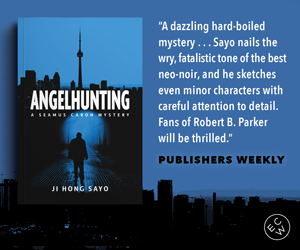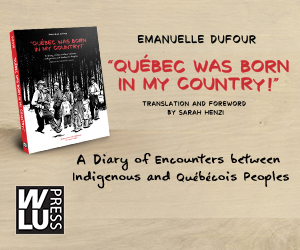Poetry in Yukon
By Lily Quan
“The next unit is Poetry.”
Was there any phrase that could make me less popular as a teacher?
I was teaching Grade 8 English in Dawson City, an historic Gold Rush town of 1,500, just 5 hours from the Arctic Circle. The sun disappears in October and doesn’t seem to reappear until March. I was lured to the Yukon by mountains and fresh air, the prospect of adventure, and, to be honest, an economy that hadn’t been touched by the recession. I accepted a teaching position at the home of literary icons Robert Service and Pierre Berton, half-hoping to find the cultural oasis the advertisements told me I would find.
What I found was a hard-scrabble place, characterized by seasonal employment. Dawson delights in its extroverts and liquor. As a friend put it, it’s a small drinking town with a mining problem. Dawson can be a warm, welcoming community – so long as you fit in. The local school focused on trades and had its share of students from troubled families. Finishing high school was a big deal. University, the goal of a small minority. So how does a quiet, academic teacher like me fare at a school like this? Poorly. It was like being on the TV show Cheers, and I was Diane Chambers.
The previous English teacher warned me about poetry. “Don’t expect much,” she said. “Here are the worksheets. You can get them to write a haiku if you’re lucky.”
I could already picture the groans and paper airplanes. My friend, a literacy specialist, gave an inspired suggestion. “Hip hop,” she said. “Use hip hop to teach poetry.” It never occurred to me: there was already an abundance of poetry the kids could relate to.
After the Christmas break, I announced the unit. Before the kids got out their spitballs, I brought out a YouTube video of hip hop artist Akala, rapping the sonnet “Shall I Compare Thee to a Summer’s Day?” The class went quiet. Akala instructed the audience in the video to put their hands to the hearts. Iambic pentameter, he said, mimics the beat of a heart. When I saw fifteen adolescents move their hands towards their chests, I knew I had them.
Each day we examined hip hop lyrics. Eminem, Jay-Z, Tupac – artists whose music I had spent a lifetime actively avoiding -- these people became my poetry heroes. We analyzed the technique that made the lines special, and the class wrote their own poems. We studied simile and one 13-year-old boy wrote this: “My soul is like a refrigerator. It’s as cold as ice and can slice your heart in two.”
The poetry unit lasted two weeks; I could have taught it the whole year.
I would love to say I became the darling of the school and students hoisted me on their shoulders in the manner of Dead Poets Society. But, uh, nope. The unit was popular; I was not. I left by March Break. It was for the best. Despite this, I’m glad to say I found a meeting point between my world and theirs through, of all things, poetry. It was a big lesson. As a friend says, “If you want acceptance, you have to accept others first.” On their terms, not yours.
Your CanLit News
Subscribe to Open Book’s newsletter to get local book events, literary content, writing tips, and more in your inbox
When rock star poet George Elliott Clarke visited Yukon this year, he was asked why he began writing poetry. “I wanted to be cool in high school,” George replied. He couldn’t play a musical instrument, so he began writing song lyrics. I couldn’t help but chuckle.
Poetry offers a breathing space; it lets you linger over the exquisite word and hold the moment in the palm of your hand. It’s close to you, as close as the next song on the radio, as close as your heartbeat.
The views expressed by Open Book columnists are those held by the authors and do not necessarily reflect the views of Open Book.
Lily Quan is a writer and editor based in Whitehorse, Yukon. Her work has appeared nationally on CBC Radio and The Globe and Mail. She runs the annual Northern Lights Writers’ Conference, whose featured authors from down south have included George Elliott Clarke, Terry Fallis and Andrew Westoll. For a glimpse of her past adventures in Yukon, visit sourdoughwannabe.wordpress.com.



